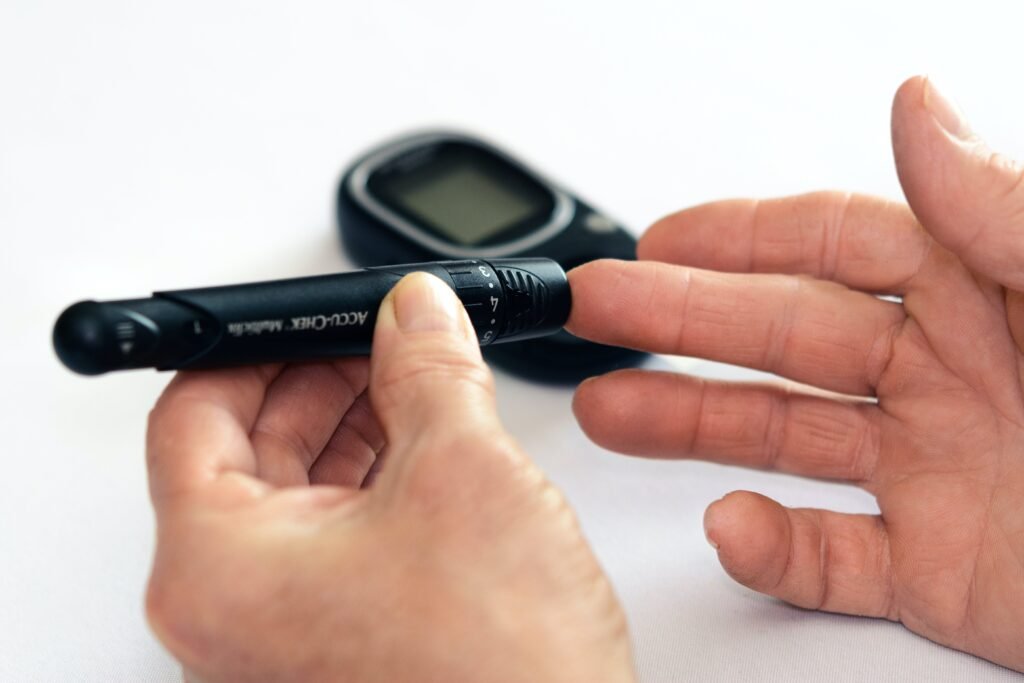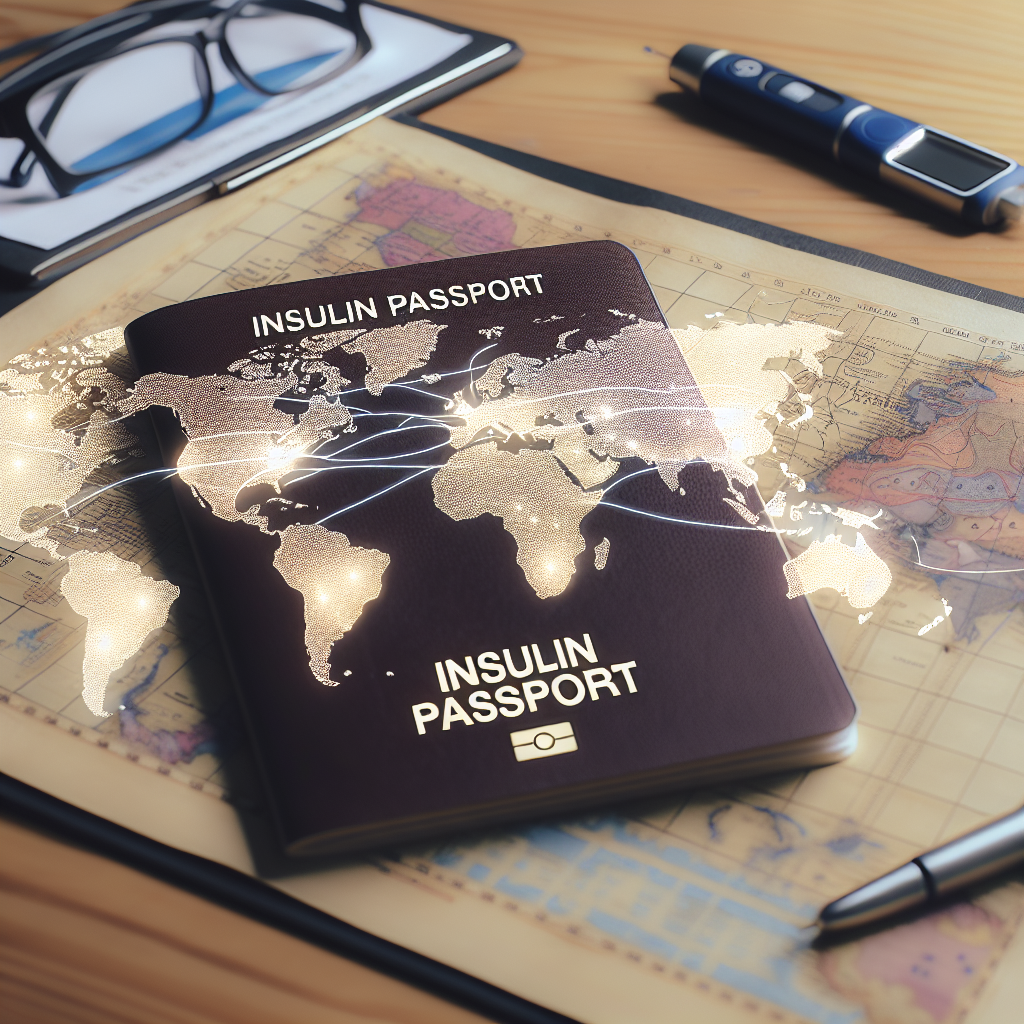Want to travel but worried about managing your insulin while abroad? Look no further! In this article, we explore the concept of an insulin passport and whether it’s something you should consider. Whether you’re a frequent traveler or planning your first international trip, understanding the benefits and potential drawbacks of an insulin passport can help ease your mind and ensure a smooth journey. So, let’s dive into the world of insulin passports and find out if it’s a must-have for you.

What is an insulin passport?
An insulin passport is a document that contains essential information about a diabetic individual and their insulin regimen. It serves as a communication tool between the individual, healthcare providers, and authorities in different countries. The passport includes personal details, emergency contact information, and details about the individual’s type of diabetes and current insulin regimen.
Purpose of an insulin passport
The main purpose of an insulin passport is to ensure the continuity of care for diabetic individuals when they are traveling internationally. It helps avoid legal issues that may arise due to the possession of insulin and needles. Additionally, the insulin passport provides emergency information, allowing medical professionals to quickly understand the individual’s medical needs during an emergency. Lastly, it offers language support, as the information in the passport can be easily translated into different languages.
Who needs an insulin passport?
Diabetic individuals traveling internationally
If you have diabetes and plan on traveling internationally, it is highly recommended to obtain an insulin passport. This is especially important if you are dependent on insulin injections to manage your diabetes. An insulin passport will provide vital information to healthcare professionals in case of an emergency and help ensure that you receive the appropriate medical care during your travels.
Diabetic individuals with specific circumstances
Even if you are not planning an international trip, there may be certain circumstances where you should consider obtaining an insulin passport. For example, if you frequently visit areas with limited access to medical care or if you participate in activities that carry a higher risk of accidents or emergencies, having an insulin passport can be extremely beneficial.
Benefits of having an insulin passport
Ensures continuity of care
One of the primary benefits of having an insulin passport is that it ensures the continuity of care for diabetic individuals. By carrying this document, you can provide crucial information about your diabetes management to healthcare professionals in any location. This information can include details about your current insulin regimen, which helps ensure that you receive the appropriate insulin doses during your travels.
Helps avoid legal issues
Possessing insulin and needles can sometimes raise legal concerns, especially when traveling. However, having an insulin passport can help mitigate these issues. By showing the passport to authorities, they can verify that you have a legitimate medical need for insulin and needles, preventing any potential legal complications.
Provides emergency information
In the event of an emergency, an insulin passport can be a lifesaver. It contains emergency contact information, details about your medical condition, and specific instructions for managing your diabetes. This allows healthcare professionals to quickly and efficiently provide the necessary care, even if they are not familiar with your medical history.
Offers language support
Traveling to a different country where English may not be widely spoken can pose challenges for diabetic individuals. Fortunately, an insulin passport can help overcome language barriers. The document can be translated into multiple languages, allowing healthcare professionals in foreign countries to understand your medical needs and provide appropriate care.

How to obtain an insulin passport
Consulting with healthcare provider
To obtain an insulin passport, the first step is to consult with your healthcare provider. They will be able to guide you through the process and provide any necessary documentation or forms. Your healthcare provider can also advise on specific information that should be included in your insulin passport based on your individual needs and medical history.
Applying through relevant authority
Once you have gathered all the required information, you will need to apply for an insulin passport through the relevant authority. Depending on your country of residence, this may be a government agency, a diabetes organization, or a healthcare institution. They will review your application and, if approved, issue you an insulin passport.
What information does an insulin passport contain?
An insulin passport typically contains the following information:
Personal details
This includes your full name, date of birth, gender, and nationality. It may also include a photograph for identification purposes.
Type of diabetes
The insulin passport will specify whether you have type 1 or type 2 diabetes. This information helps healthcare professionals understand the specific needs and considerations for managing your diabetes.
Current insulin regimen
Your insulin passport should provide details about your current insulin regimen, including the type of insulin you use, the dosage, and the frequency of administration. This information is crucial for ensuring you receive the correct insulin doses during your travels.
Emergency contact information
To ensure prompt communication in case of an emergency, your insulin passport should include emergency contact information. This can include the name, phone number, and relationship to the individual of at least one emergency contact person.
Doctor’s contact details
In addition to emergency contact information, it is essential to include the contact details of your primary healthcare provider or endocrinologist. This enables healthcare professionals in foreign countries to reach out to your doctor for any necessary medical information or clarifications.

Are insulin passports legally required?
Varies by country
The requirement for insulin passports varies by country. Some countries may have specific regulations mandating the possession of an insulin passport for diabetic individuals traveling to their territories. It is crucial to research the specific requirements of your intended destination to ensure compliance with their regulations.
International travel recommendations
Even if an insulin passport is not legally required, it is strongly recommended for diabetic individuals traveling internationally. The passport provides a range of benefits, including the assurance of continuity of care and the ability to communicate vital medical information to healthcare professionals in foreign countries.
Countries that require insulin passports
List of countries with mandatory insulin passports
While the list of countries that require insulin passports is subject to change, some countries currently mandate the possession of an insulin passport. These may include countries in the European Union such as France, Italy, and Spain, as well as other nations like Egypt, Saudi Arabia, and the United Arab Emirates. It is important to check the latest travel advisories and requirements for each country you plan to visit.

Exceptions and alternatives to insulin passports
Medical bracelets or identification cards
In some cases, wearing a medical bracelet or carrying a diabetes identification card may be accepted as an alternative to an insulin passport. These items should clearly indicate your diabetic condition and provide emergency contact information. However, it is advisable to check with the relevant authorities or healthcare professionals in your destination country to confirm whether these alternatives are acceptable.
Translation of medical documents
If obtaining an insulin passport is not feasible or necessary, another option is to have your medical documents translated into the local language of your destination country. This can include your medical history, current medication list, and any relevant prescriptions. While not as comprehensive as an insulin passport, translated medical documents can still provide valuable information to healthcare professionals in case of an emergency.
Importance of carrying an insulin passport while traveling
Ensuring access to medical care
Carrying an insulin passport while traveling is of paramount importance for ensuring access to appropriate medical care. In the event of an emergency or unexpected medical situation, the insulin passport enables healthcare professionals to quickly understand your diabetes management needs and administer the necessary treatment.
Communicating necessary information effectively
An insulin passport acts as a clear and concise summary of your diabetes-related information. By carrying this document, you can effectively communicate important details about your condition, medication, and emergency contacts. This ensures that healthcare professionals can provide the best care possible, even if they are unfamiliar with your medical history or do not speak your language.

Conclusion
If you are a diabetic individual planning to travel internationally, obtaining an insulin passport is highly recommended. The insulin passport serves as a crucial tool for ensuring the continuity of care, avoiding legal issues, providing emergency information, and offering language support. By following the necessary steps to obtain an insulin passport and carrying it with you while traveling, you can enjoy peace of mind knowing that your medical needs will be understood and met, regardless of your destination. Remember to check the specific requirements of your destination countries and consult with healthcare professionals for personalized advice. Safe travels!

